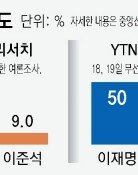Korea-Chile FTA Excludes Rice, Apples, and Pears
Korea-Chile FTA Excludes Rice, Apples, and Pears
Posted February. 16, 2004 22:32,
The Korea-Chile FTA commits the two countries to mutually open markets for commodities, services, government supply contracts, and intelligence properties.
In a nutshell, the treaty is aimed at commodity trade liberalization by removing tariffs.
Under the treaty, the two countries will lift tariffs on 95 percent of their traded items in the next 10 years. After 10 years, Korea and Chile will be a single market, excluding some sensitive items.
As for Korea, it will immediately repeal tariffs on 9,740, or 87.7 percent, of the 11,170 items named in the treaty. Chile will also remove tariffs on 2,450, or 41.8 percent, of the 5.894 items immediately.
Korea plans to first liberalize 99.9 percent of the industrial goods, the commodities it has a competitive edge over Chile, covered in the treaty while it open its agrarian market in stages. Chile will liberalize 92.9 percent of the agrarian products while it will gradually open the industrial market.
Korea has excluded rice, apples, and pears, the sensitive commodities for Korean agriculture, from the treaty. Grapes wont be subject to the treaty in the countrys peak season between May and October. Apples, pears, and grapes are Chiles major exports that make up 62.2 percent of its trade. As a result, the FTA wont affect Koreas agriculture.
Korea will limit the quantity of beef, chicken, and pork imports or gradually reduce the tariffs.
Chile will immediately open markets for automobiles, electronic goods (mobile telephones), and garments once the FTA takes effect. All these are Koreas major export items and help exports to Chile.
Washing machines and refrigerators were excluded from the treaty because of local opposition in Chile.
Korea will find itself at an advantage over Chile in intelligence properties and government supply contracts.
Under the government supply contract clause of the treaty, Koreans and Chileans can bid on the same footing for each others government contracts.
Given the competitive edge Korean companies have over the Chileans, more Koreans will cut into the Chilean government contract market than Chileans do in the Korean market. The volume of Chilean government supplies is estimated at $2-3 billion a year.
Ji-Wan Cha cha@donga.com







